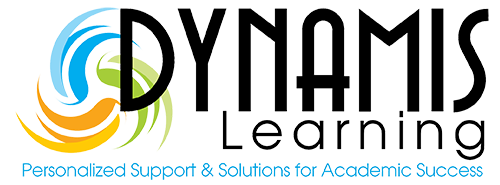 Whether it is your first time at an IEP meeting, or you are a veteran at the IEP table, it can be overwhelming, stressful, and anxiety causing. There are so many items running through your head, and they can be hard to understand. Most IEP meetings have multiple people in attendance, and you may not know them all. Each person speaks about your child during the meeting. When I was a teacher, at the IEP table, I wish I would have done a better job at giving my families advice on how to make an IEP meeting less stressful.
Whether it is your first time at an IEP meeting, or you are a veteran at the IEP table, it can be overwhelming, stressful, and anxiety causing. There are so many items running through your head, and they can be hard to understand. Most IEP meetings have multiple people in attendance, and you may not know them all. Each person speaks about your child during the meeting. When I was a teacher, at the IEP table, I wish I would have done a better job at giving my families advice on how to make an IEP meeting less stressful.
The top 5 questions I believe any parent should ask at the IEP table are found below:
 How will progress on goals/objectives be measured?
How will progress on goals/objectives be measured?
At the IEP meeting, each service provider will discuss your child’s unique needs. They will discuss strengths and weaknesses and propose goals/objectives that will support these weaknesses. It is important for you to know how often data will be collected and when progress will be shared with you. It can be every 4.5 weeks, every 9 weeks, or every semester. I typically recommend that data be shared with parents every 9 weeks and that the data be sent with the progress report.- What does communication look like?
This is the area that is the root of most of the problems and why families reach out to me. Communication is so important and can be the most impactful. As a parent, determine how you would like to be communicated with. Is it by email, phone, text? How often would you like to be communicated with? Be sure that a communication plan is written into the IEP. Having a solid plan allows for you and the school team to have little to no surprises. - Who is responsible for each of the supports that my child receives?
This can often be a grey area. Define what each person’s role and responsibilities are. This way there is no confusion, and everyone is on the same page. Be sure to have these specifics documented in the IEP. - What do the services look like on a daily basis?
Your interpretation and understanding of what your child’s services look like on a daily basis can be different than what is actually happening. Find out where your child will be throughout his/her day. They could be in a variety of locations ranging from a general education classroom to a small group special education classroom or even a 1:1 setting. It is fine to ask why a specific location was recommended. - How can I support at home?
It takes a team! There are strategies and tools that are used in school that can be implemented at home. You might ask…why is this important? Well, the answer is simple…..Consistency. Why reinvent the wheel?
 My advice to you as a parent is to start preparing for your child’s IEP meeting sooner than later. Keep a journal of your concerns and worries. Write down questions that you have for the school team. When it comes time for the meeting, bring this journal with you and be sure to take notes during the meeting. In the end, all will go just fine. (photo 4) I invite you to reach out to me at www.heatherwrightconsultant.com. You can also connect/follow me (Heather) on Instagram: @heatherwrightconsultant
My advice to you as a parent is to start preparing for your child’s IEP meeting sooner than later. Keep a journal of your concerns and worries. Write down questions that you have for the school team. When it comes time for the meeting, bring this journal with you and be sure to take notes during the meeting. In the end, all will go just fine. (photo 4) I invite you to reach out to me at www.heatherwrightconsultant.com. You can also connect/follow me (Heather) on Instagram: @heatherwrightconsultant
About the Author:
Heather Wright, M.Ed is a special education consultant who lives in North Georgia. She is a certified special education teacher and Master IEP Coach®. She has more than 16 years in special education. Her goal is to work collaboratively with families and districts to meet the unique needs of the student in the public school setting. When she is not supporting families at the IEP table, she is spending time with her husband, Jerry, and two fur babies, Guinness and Crosby.
Whether it is your first time at an IEP meeting, or you are a veteran at the IEP table, it can be overwhelming, stressful, and anxiety causing. There are so many items running through your head, and they can be hard to understand.

Most IEP meetings have multiple people in attendance, and you may not know them all. Each person speaks about your child during the meeting. When I was a teacher, at the IEP table, I wish I would have done a better job at giving my families advice on how to make an IEP meeting less stressful.
The top 5 questions I believe any parent should ask at the IEP table are found below:
 How will progress on goals/objectives be measured?
How will progress on goals/objectives be measured?
At the IEP meeting, each service provider will discuss your child’s unique needs. They will discuss strengths and weaknesses and propose goals/objectives that will support these weaknesses. It is important for you to know how often data will be collected and when progress will be shared with you. It can be every 4.5 weeks, every 9 weeks, or every semester. I typically recommend that data be shared with parents every 9 weeks and that the data be sent with the progress report.- What does communication look like?
This is the area that is the root of most of the problems and why families reach out to me. Communication is so important and can be the most impactful. As a parent, determine how you would like to be communicated with. Is it by email, phone, text? How often would you like to be communicated with? Be sure that a communication plan is written into the IEP. Having a solid plan allows for you and the school team to have little to no surprises. - Who is responsible for each of the supports that my child receives?
This can often be a grey area. Define what each person’s role and responsibilities are. This way there is no confusion, and everyone is on the same page. Be sure to have these specifics documented in the IEP. - What do the services look like on a daily basis?
Your interpretation and understanding of what your child’s services look like on a daily basis can be different than what is actually happening. Find out where your child will be throughout his/her day. They could be in a variety of locations ranging from a general education classroom to a small group special education classroom or even a 1:1 setting. It is fine to ask why a specific location was recommended. - How can I support at home?
It takes a team! There are strategies and tools that are used in school that can be implemented at home. You might ask…why is this important? Well, the answer is simple…..Consistency. Why reinvent the wheel?

My advice to you as a parent is to start preparing for your child’s IEP meeting sooner than later. Keep a journal of your concerns and worries. Write down questions that you have for the school team. When it comes time for the meeting, bring this journal with you and be sure to take notes during the meeting. In the end, all will go just fine. (photo 4) I invite you to reach out to me at www.heatherwrightconsultant.com. You can also connect/follow me (Heather) on Instagram: @heatherwrightconsultant
About the Author:
Heather Wright, M.Ed is a special education consultant who lives in North Georgia. She is a certified special education teacher and Master IEP Coach®. She has more than 16 years in special education. Her goal is to work collaboratively with families and districts to meet the unique needs of the student in the public school setting. When she is not supporting families at the IEP table, she is spending time with her husband, Jerry, and two fur babies, Guinness and Crosby.
